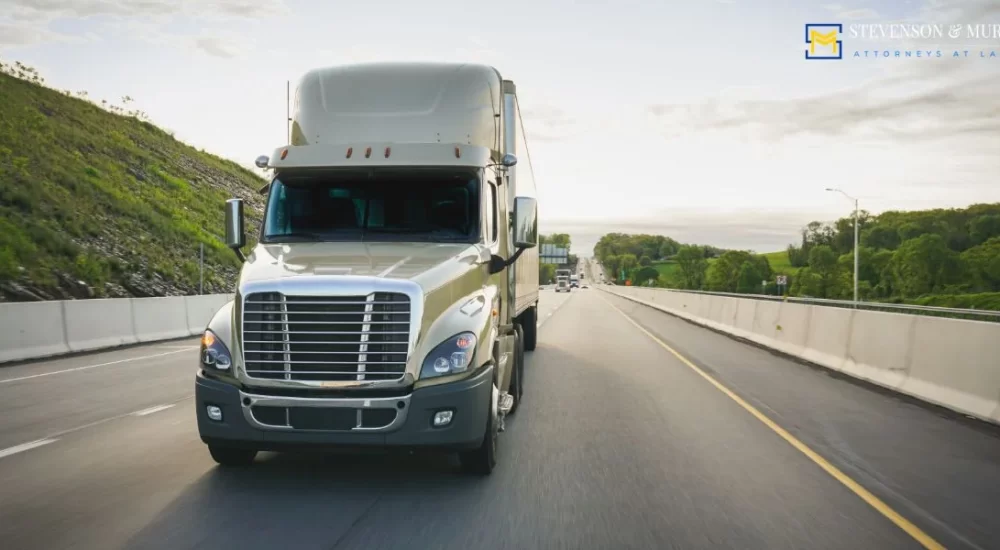Texas Trucking Laws & Regulations
In the United States, all commercial vehicles fall under state and federal laws and regulations. Many of these laws are put into place to improve the safety of other users of the nation’s roadways. When commercial truck users operate their vehicles with negligence, recklessness, or intentional failure to follow Texas trucking laws and regulations, they risk devastating collisions. These accidents can result in horrific, sometimes life-threatening injuries and even death.
After a truck collision, the police will attempt to determine whether any violations of trucking laws occurred. Their report might help you build a case against the negligent party, whether it be the driver, the trucking company, or the faulty equipment manufacturer. A personal injury attorney can help you receive appropriate compensation for any damage to life and property that took place due to the accident.
Regulations for Commercial Vehicles
Under the United States Constitution, Congress often creates and passes laws covering all international and interstate trade. This means that the federal government has jurisdiction over all commercial transport and anything that may affect it.
Trucking companies are then required to conduct intense and extensive inspections of all their trailers and trucks at least once per year. These inspections must include all items listed in the Minimum Periodic Inspection Standards. This covers checks on the brake system, coupling devices, the exhaust system, and the fuel system, plus a litany of other truck and trailer functions.
In addition to all these, truck drivers must inspect their own vehicles and ensure that the truck and trailer can be safely driven before they begin their trip. They are also instructed to complete a post-trip vehicle report and list any issues or defects in their vehicle that may affect its safe operation. Anything listed in that report must be addressed and corrected before the truck can be allowed back on the roadways.
Weight and Speed Limits for Texas Trucks
In the state of Texas, all large commercial vehicles must sustain a maximum of 70 mph during the day and 65 mph at night. Under federal regulations, the maximum for truck weight on interstate roadways is 80,000 pounds. This number must include the truck, trailer, and the cargo being hauled.
Trucking companies are also held to very strict standards on how cargo can be loaded and secured. These regulations include everything from the types of tie-downs available for use and which person in the company is responsible for checking the security of the load before the truck and driver are given the all-clear. These regulations have been established to help reduce the number of accidents caused by weak or falling cargo.
Texas CDL Laws
In the state of Texas, all drivers operating a commercial truck must be in possession of an up-to-date commercial driver’s license or CDL. There are three classes of CDLs in Texas that allow drivers to use and operate certain commercial vehicles. Those classes are:
- Class A: Allows an individual to drive a vehicle with a gross combined weight of 26,001 pounds or more or a combination of vehicles with a gross combined weight of 26,001 if the gross combined weight of the vehicles towed does not exceed 10,000 pounds. This class also allows the driver to operate any Class B or C vehicle.
- Class B: Allows the driver to operate a single vehicle with a gross combined weight of 26,001 pounds or a single vehicle with a gross combined weight of 26,001 towing a vehicle that does not exceed 10,000 pounds or a farm trailer that does not exceed 20,000 pounds. It also allows the driver to operate any vehicle transporting 24 or more passengers and any Class C vehicle.
- Class C: Allows the driver to operate a single vehicle or combination of vehicles not included in Class A or B or any vehicle transporting between 16 and 23 passengers.
FAQs
Q: What Are the Trucking Laws in Texas?
A: In Texas, you must be at least 18 years old for an intrastate commercial driver’s license and 21 for an interstate commercial driver’s license. A truck and trailer, along with its fully loaded cargo, cannot surpass a weight of 80,000 pounds. Trucks can only go a maximum speed limit of 70 mph on roadways during the day and 65 mph at night and on some rural roadways.
Q: What Is the New Law in Texas for Truck Drivers?
A: Texas’s new House Bill 4337 establishes that all employees must verify the validation and ownership of commercial driver’s licenses or commercial learner’s permits of their employees. This shows the vital need for proper authorization of employment for those individuals working with US-based companies. Drivers are also mandated to provide employment validation to inspectors to make sure all employees have a valid work visa or residency status.
Q: What Is the Texas 70/7 Rule?
A: The Texas 70/7 rule states that drivers of qualifying vehicles operating in interstate commerce are not permitted to continue to drive if they have already driven for 70 hours in a consecutive 7-day period. The driver may restart this 7-day period after taking off 34 or more consecutive hours.
Q: How Many Dot Hours Can You Drive in Texas?
A: In Texas, drivers of interstate commerce are permitted to drive 12 hours following eight consecutive hours off. These same drivers may not drive after 15 hours on duty following 8 hours off. Any drivers found to be in violation of this shall be placed out of duty for 8 hours.
How a Texas Truck Accident Attorney Can Help
If you have found yourself reeling from the aftermath of a commercial truck accident, know that there is something you can do to get justice. An experienced truck accident lawyer can make sure all evidence is secured from the scene of the accident and can work with truck industry professionals to explain how the crash was caused. They can also document all your potential expenses and losses due to medical expenses or property damage.
If you or a loved one has experienced a truck accident in the state of Texas, contact a trusted truck accident lawyer from Stevenson & Murray today. We’re here to help during this challenging time.

Get Help Today
Request a Free Consultation
"*" indicates required fields


